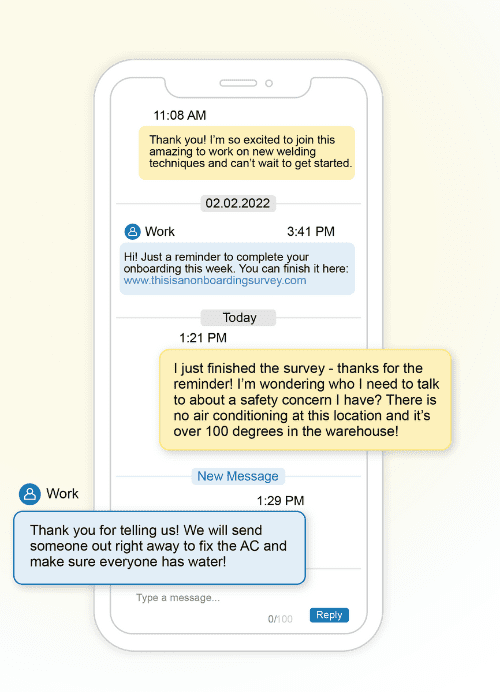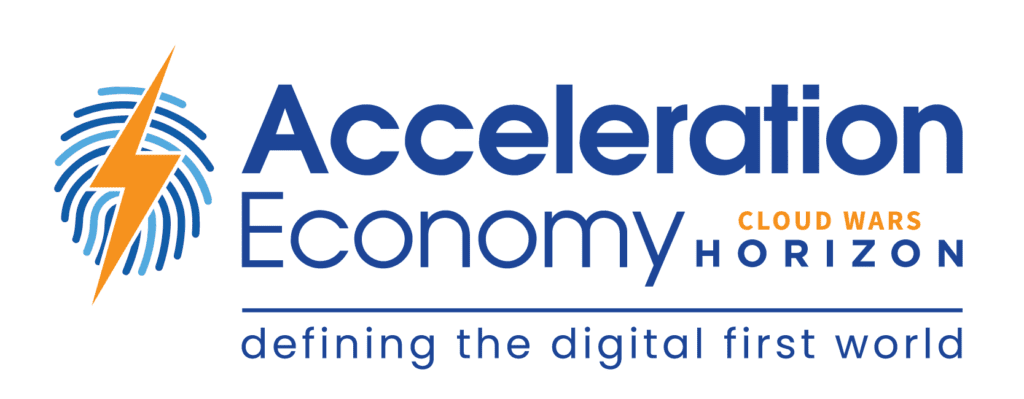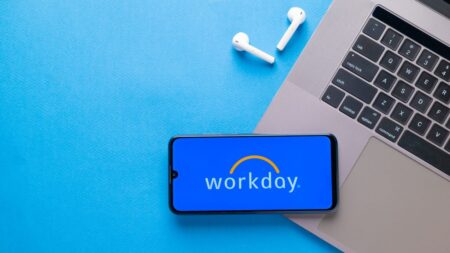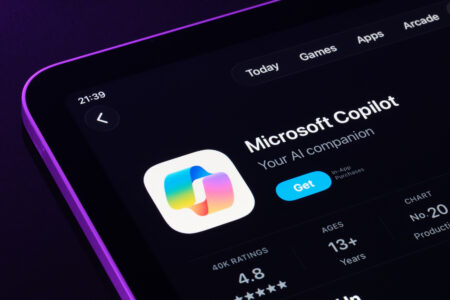Anthill is part of a profile series featuring startups participating in the Innovation Path at Cloud Wars Expo, taking place June 28-30 in San Francisco.
Who They Are:

Those of us who work in the tech field may have a tendency to think about the global workforce as being similar to us: always connected, equipped with the latest computer, cellphone, and Internet technology, and technologically savvy.
So it may come as an eye-opener, as it did for me, to learn more about the “deskless” workforce – and its scale. A deskless worker is one that doesn’t:
- Work in an office
- Have an employer email address
- Have computer access through an employer
- Necessarily have a smartphone
The number of workers globally who have the characteristics cited above is 2.7 billion, or 80 percent of the global workforce.
Startup company Anthill aims to help companies manage and retain deskless workers more effectively. Its value proposition: Since companies are already investing in deskless workers with training and other resources, they should proactively engage them and retain these workers as well as they treat their knowledge workers. The company also aims to bring new possibilities (such as growth opportunities) to the deskless workforce.
Anthill’s solution is built on a simple premise: using text messaging (which is available even to those without smartphones) as a means to engage these workers, build more of a relationship with them and, ultimately, retain them.

With $4.4 million in venture capital funding and 23 employees, Chicago-based Anthill is part of the SAP.io startup accelerator program.
What They Do:
If it’s not yet clear who the deskless worker is, consider these roles and industries, as shared by Jennifer Harris-Kroll, director of growth at Anthill: retail workers, warehouse workers, truck drivers, delivery drivers, and field workers, to name just a few.

Anthill approaches the deskless workforce management challenge from the perspective that this workforce may not like using smartphone apps (if they have a smartphone), may not have cell service with data and, even if they do, may not want a company app on their phone.
The company has built three applications that primarily target human resources departments, all of which work in concert with a company’s core HR systems, such as those from Workday, SAP, Kronos, and more. “Anthill can be deployed through a company’s system of choice,” Kroll says. “It can be set up by department, location, state — however you want to associate it with your people.”
Its applications are Anthill Connect, Anthill Retain, and Anthill Grow.
Anthill Connect
Connect enables two-way text-based communications with deskless employees. Because it’s two-way communication, it lets employees respond to their employer, pose questions, obtain self-service information, and more in order to streamline the flow of information and simplify the handling of frequent inquiries.
Requests can be responded to on an automated basis, with urgent issues escalated to the correct person. “HR departments typically have a number of questions they get asked several times a day and we can automate those replies. We resolve about 85% of questions that come in automatically, and then those that do need more attention get escalated,” Kroll says.
Common questions that arise relate to not getting paid, or not getting paid the correct amount, benefits, and W-2s.
Anthill Grow
Anthill Grow is designed to help employers and HR departments understand the skills and competencies of their deskless workforce, without having them submit resumes, which they may not have anyway.
If there’s a need for a particular skill set or experience, Grow can identify whether that skill exists somewhere in the workforce. This helps give a greater understanding of talent that’s already there while saving the time and cost of conducting an external search. This will also motivate deskless workers to see they have opportunities to grow within the company. “This is a great alternative to just letting people go and wasting the time and money you’ve already invested in them,” Kroll says.
Anthill Retain
By now we’re all quite familiar with the great resignation, the great reshuffle, or whatever you choose to call it. There’s been tremendous displacement in the workforce, with much of it driven by workers deciding they’d had enough of a given employer. But deskless workers have different motivations and factors that make them leave a job than office workers. They leave because they didn’t get paid on time or the right amount, they don’t get recognition for a job well done, or they don’t know who to go to when they have a problem. “A lot of the things that would solve the retention issue are actually pretty light lifts,” Kroll says.
Anthill Retain aims to lighten them further: It can perform assessments that make it possible to learn more about your workforce and predict drivers of turnover. It can help an employer rapidly respond to safety, walkout, or other potentially problematic scenarios through anonymous chats. Kroll cited one example of a customer that was at risk of having two teams on a shift walk out of work when there was no air conditioning on a 100-degree day. Employees escalated the issue and it was resolved before that work (and those employees) were lost. That type of scenario “gets very expensive, very fast,” she says.

Who They Expect to Impact and Final Thoughts
Anthill did not have a customer reference it could share, but we will check back for that in the future to find out how its technology is helping customers as well as what types of feedback they offer.
The size and scale of the deskless workforce certainly speak to a major opportunity for Anthill. More to come as this company develops and evolves; we’ll provide an update when they have more to share, including customer references.
Want to gain more insights from Cloud Wars Expo?
Starting on July 20th, more than 40 hours of on-demand cloud education content will be available for free to Acceleration Economy Subscribers.










